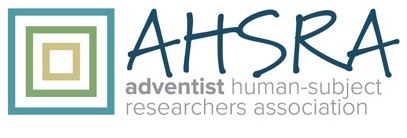Citizenship, Religion, and Protest: Explaining Latinos’ Differential Participation in the 2006 Immigrant Rights Marches
Start Date
17-5-2019 1:15 PM
Description
Does religion promote or deter political activism? Most arguments and evidence on this question do not account for variation by social position. We argue that for the 2006 spring immigrant rights marches understanding the influence of religion on participation requires a careful assessment of the relationship between various dimensions of religion and the risks, barriers, and motivations that are rooted in citizenship status of potential participants. Dimensions that enhance efficacy are important for overcoming the participation obstacles that noncitizens faced. In contrast, dimensions that contributed to solidarity, opportunities, and framing fostered citizens’ mobilization. Our findings from the Pew Hispanic Center and the Pew Forum on Religion and Public Life national survey of Latinos are consistent with the view that Charismatic identity and a salient personal religious faith were sources of empowerment that inspired noncitizen participation. Conversely, the emphasis on “law and order” of the biblical literalist as well as the pietistic orientation of a faith marked by personal prayer hindered marching among Latino noncitizens. Catholic and mainline Protestant traditions and a close association between faith and politics influenced citizen protest but not noncitizen involvement. Integration into congregations activated for immigrant rights and involvement in congregation-based volunteerism encouraged participation for both citizens and noncitizens.
Citizenship, Religion, and Protest: Explaining Latinos’ Differential Participation in the 2006 Immigrant Rights Marches
Does religion promote or deter political activism? Most arguments and evidence on this question do not account for variation by social position. We argue that for the 2006 spring immigrant rights marches understanding the influence of religion on participation requires a careful assessment of the relationship between various dimensions of religion and the risks, barriers, and motivations that are rooted in citizenship status of potential participants. Dimensions that enhance efficacy are important for overcoming the participation obstacles that noncitizens faced. In contrast, dimensions that contributed to solidarity, opportunities, and framing fostered citizens’ mobilization. Our findings from the Pew Hispanic Center and the Pew Forum on Religion and Public Life national survey of Latinos are consistent with the view that Charismatic identity and a salient personal religious faith were sources of empowerment that inspired noncitizen participation. Conversely, the emphasis on “law and order” of the biblical literalist as well as the pietistic orientation of a faith marked by personal prayer hindered marching among Latino noncitizens. Catholic and mainline Protestant traditions and a close association between faith and politics influenced citizen protest but not noncitizen involvement. Integration into congregations activated for immigrant rights and involvement in congregation-based volunteerism encouraged participation for both citizens and noncitizens.



